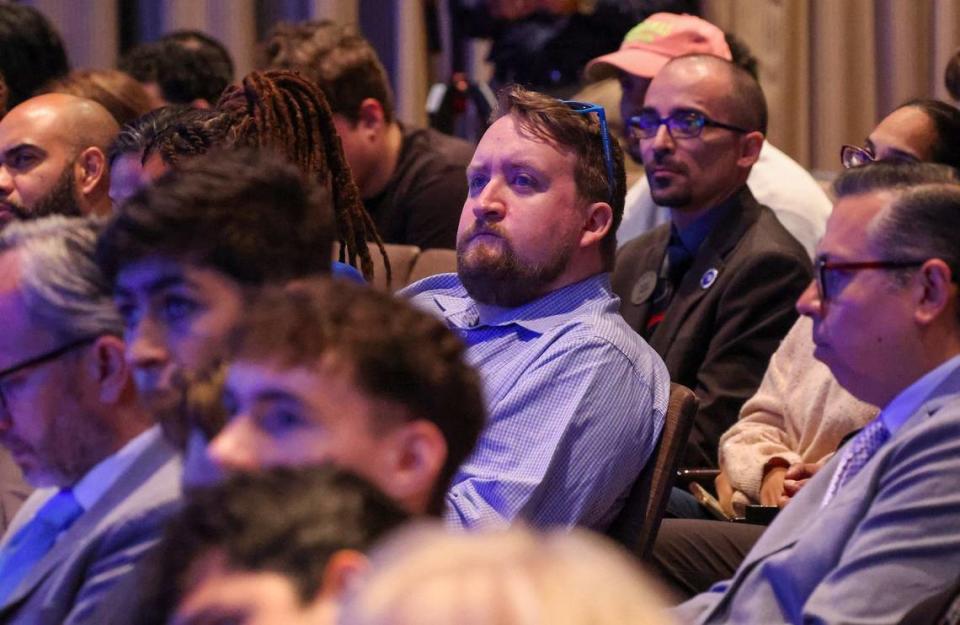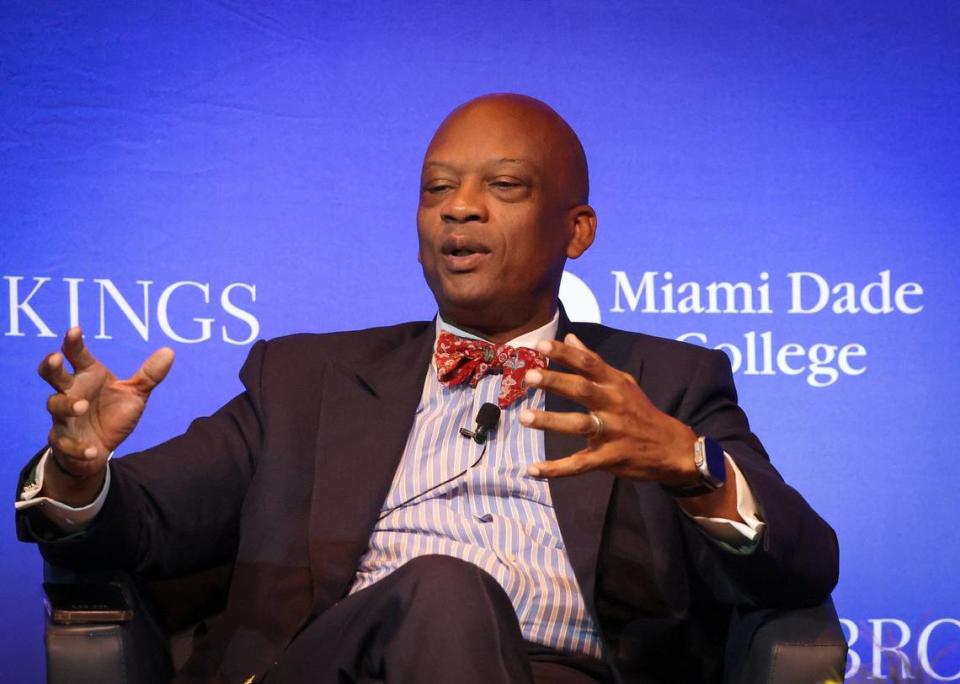High debt, Social Security’s coming bankruptcy needs to be tackled by politicians, panel says
Miami Dade College on Tuesday morning gathered economic experts and politicians at its Wolfson Campus in downtown Miami to discuss the most pressing economic issues that voters should keep an eye on going into the 2024 presidential election.
In partnership with the Brookings Institution, the college hosted a panel discussion with economists Ben Harris and Douglas Holtz-Eakin and Miami-Dade Commission Chairman Oliver Gilbert. They highlighted several topics, like Social Security reform and the country’s rising debt, as areas of concern that politicians should be addressing.
“I think today’s conversation, among leading economists in the country, is so vitally important to being informed,” said Madeline Pumariega, president of Miami Dade College, in her opening remarks for the event.
“We know that being informed provides the opportunity for you to engage and to make a difference and to have your voice heard. So we are incredibly proud to be a convener of this type of forum,” said Pumariega.
CBS Miami’s Betty Nguyen moderated the event and posed questions about tax policy, government spending, and more to the panelists and at the end of the morning audience members asked their own questions.

Here are some takeaways from the event:
Social Security and Medicare are not sustainable
Harris, who was previously the chief economist at the U.S. Department of the Treasury, said that the country’s trust funds for Medicare and Social Security are projected to go bankrupt in the early 2030s.
Harris said this won’t mean that these programs will cease to exist, but Americans would not receive all of the promised payments from these programs if they reach bankruptcy— unless policymakers implement reforms to fix these systems.
Politicians aren’t addressing big economic problems
Both Harris and Holtz-Eakin, who was the sixth director of the Congressional Budget Office, agreed that politicians need to be actively working to solve economic problems like Social Security reform and the country’s debt problem now rather than in 10 years, when the problem will be worse.
“These are long-term problems that demand solutions in advance. We’re still seeing the effects today of the Social Security reform that was made in 1983. These are decades long solutions and waiting until the very last minute is wildly irresponsible,” said Harris.
Holtz-Eakin said that he doesn’t doubt that Congress will work to fix these problems, but by not actively doing so now, Americans lose hope.
“You do have in younger workers a real lack of confidence that they’re ever going to see Social Security and that’s not okay. We should fix it now,” said Holtz-Eakin.
Voters should demand fiscal responsibility
The panelists agreed that voters need to elect candidates wisely and put pressure on officials to address looming economic problems. Harris said fiscal responsibility has not been a main driver for candidates being elected or kicked out of office.
“We keep electing politicians who keep backing policies that increase the debt over time. I mean, to a certain extent, it’s our fault,” said Harris.
“We’ve demanded low taxes, we’ve demanded lots of services, we’ve demanded relief during economic downturns — we haven’t really demanded fiscal responsibility, and that may change. I think that it’s going to take not just a change from policymakers, but also from the American public in order to get to where we need to get to.”
During the panel, Gilbert also brought up voters’ culpability in the state of the economy, saying that “elections have consequences.”
“When you don’t vote, understand that what you’re saying is that you’re good with whatever [politicians] decide,” said Gilbert.

